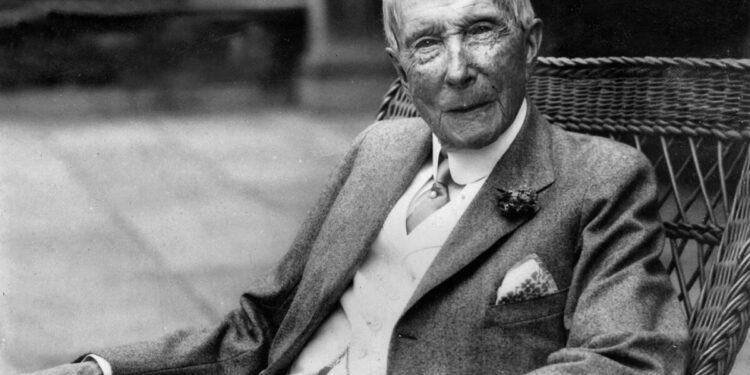Introduction
The Rockefeller family is synonymous with wealth, power, and philanthropy. For over a century, this prominent American dynasty has left an indelible mark on the nation’s economic, political, and cultural landscape. In this 900-word article, we will delve into the rich history of the Rockefeller family, their vast fortune, and their enduring legacy in philanthropy, business, and public service.
The Beginnings
The Rockefeller family’s remarkable journey begins with John D. Rockefeller, who was born in 1839 in Richford, New York. He was the second of six children, born to William Avery Rockefeller and Eliza Davison. From humble beginnings, John D. Rockefeller’s early life was marked by hard work, determination, and an innate business acumen.
The Rise of Standard Oil
In 1870, John D. Rockefeller co-founded the Standard Oil Company. This marked the beginning of an empire that would revolutionize the oil industry. Standard Oil quickly gained a dominant position in the market, refining and distributing oil more efficiently than any of its competitors. By 1880, it controlled 90% of America’s oil production, making Rockefeller one of the wealthiest individuals in history.
Anti-Trust and Philanthropy
Rockefeller’s success came with controversy. Standard Oil faced allegations of monopolistic practices, which led to the Sherman Antitrust Act in 1890. In 1911, the U.S. Supreme Court ordered the breakup of Standard Oil into 34 smaller companies. This event shaped Rockefeller’s later philanthropic endeavors.
Rockefeller’s Philanthropy
After the dissolution of Standard Oil, John D. Rockefeller became an avid philanthropist. In 1913, he established the Rockefeller Foundation, one of the world’s first major philanthropic organizations. The foundation’s mission was to promote the well-being of humanity, focusing on education, public health, and scientific research.
Through the Rockefeller Foundation, he supported the fight against diseases such as yellow fever, hookworm, and malaria, making significant contributions to global public health. The foundation also played a pivotal role in the Green Revolution, a program that aimed to improve agricultural productivity and reduce hunger in developing countries.
The Rockefeller family’s philanthropic efforts didn’t stop with John D. Rockefeller. His son, John D. Rockefeller Jr., carried the torch, dedicating his life to causes that ranged from the arts to urban planning and preservation. John D. Rockefeller Jr. played a key role in the development of Rockefeller Center in New York City, a commercial complex and art hub that remains a symbol of the family’s influence.
The Legacy Lives On
John D. Rockefeller Jr.’s passion for philanthropy was inherited by his own children. One of his sons, Nelson Rockefeller, was the 41st Vice President of the United States under President Gerald Ford. His tenure in office was marked by a dedication to public service and various domestic and international initiatives.
Another son, David Rockefeller, was a prominent banker and philanthropist. He played a central role in the development of the Chase Manhattan Bank and the Council on Foreign Relations. David’s contributions to the family’s legacy in philanthropy included his support for education and the arts.
Today, the Rockefeller legacy continues through various family members and institutions. The family’s commitment to philanthropy remains steadfast, with charitable foundations supporting causes such as medical research, arts and culture, education, and environmental conservation.
Challenges and Controversies
While the Rockefeller family’s legacy in philanthropy is widely recognized, they have faced their share of controversies. Critics argue that their philanthropic efforts were a form of damage control, an attempt to rehabilitate their image after the Standard Oil antitrust case.
Moreover, the family’s wealth and influence have occasionally been linked to allegations of undue political influence and corporate greed. These issues underscore the complex relationship between business success, wealth, and the public perception of philanthropy.
The Rockefeller family’s story is a complex tapestry of business acumen, wealth, philanthropy, and controversy. From John D. Rockefeller’s humble beginnings to the empire of Standard Oil and the subsequent legacy of philanthropy, their journey has left an indelible mark on American history.
The Rockefeller family’s commitment to making a difference in the world through their philanthropic endeavors is undeniable. The establishment of the Rockefeller Foundation and the family’s continued involvement in numerous charitable initiatives showcase their dedication to the betterment of humanity.
While the family’s legacy is not without its challenges and controversies, their impact on philanthropy and society as a whole is undeniable. The Rockefeller family’s story serves as a testament to the enduring power of wealth and influence to shape the world and leave a lasting legacy for generations to come.
newshub



Recent Comments